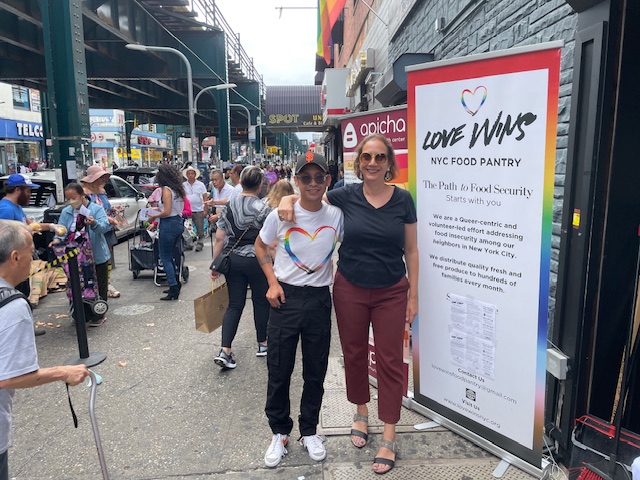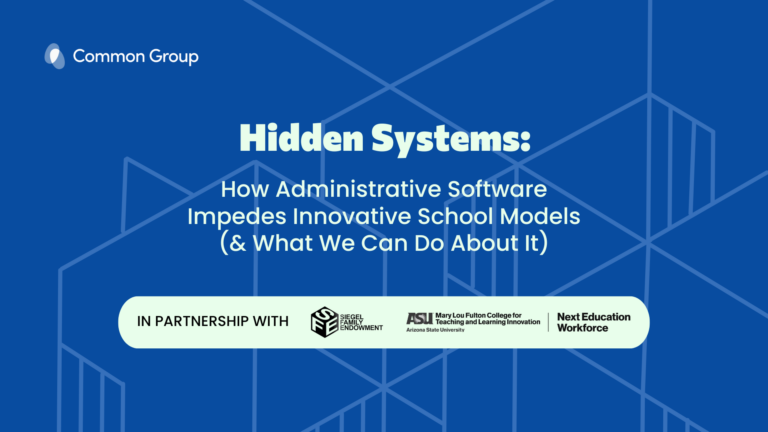by Connor Diemand-Yauman
What are the most impactful ways to ensure scalable, equitable opportunities for wealth-creation in communities of all sizes? A critical segment of Siegel Family Endowment’s workforce grantmaking aims to develop inclusive entrepreneurial innovation ecosystems that are open to and centered on historically excluded populations. One of our key grantees in this space is Merit America, an organization that creates a pathway to competitive and gate-kept tech-careers through training and skill development.
In this Q&A, Merit America’s cofounder and co-CEO Connor Diemand-Yauman examines the ways in which his organization’s programs set participants up for success, and explores the strategic rules and rationales his team uses to make meaningful decisions about what kinds of skills to prioritize, how to engage with employers, and expanding access through innovative financing.
What are the characteristics of a “good job” in today’s economy? What standard should employees seek, and how can programs like yours motivate them to seek jobs that meet those standards?
We define a “good job” as one that pays a living wage, with full benefits and opportunities for advancement. Furthermore, a good job is one that fosters an inclusive, diverse workplace free from discrimination and harassment due to race, religion, color, national origin, gender, sexual orientation, or other factors.
In an ideal world, employees would have the opportunity to be selective as they search for new employers and “good” jobs, but that experience is not one shared by the vast majority of Merit America’s learners. Degree-based hiring practices, Bachelor’s degree discrimination, and other barriers to higher education exist for the vast majority of Americans, and a great deal of our learners do not have access to jobs that meet these baseline criteria for a “good” job. We aim to change that by turning the tables, and empowering our learners to set the standards and parameters for what a “good job” looks like to them.
What criteria do you use to define “in-demand” careers?
We use labor market data and employer partnerships to select fields with meaningful upward mobility, with initial learning tracks in Information Technology, Java Development, and Customer Success. Our programs operate in locations where labor market data show there is significant job demand aligned to these tracks, but we don’t limit our programs to specific roles or geographies. Rather, we go where there is the greatest mismatch between supply and demand. Specifically, we use the following criteria to define an “in-demand” career:
- A living wage starting salary for entry-level workers without a college degree
- Relative openness to hiring non-degreed learners
- Demand from both employers and learners, as demonstrated by total employer job postings and current demand from employer partners, H1B visa filings, job growth over time, and volume of relevant majors at large online learning institutions
Using the criteria listed above, we’ve developed lists of priority careers that offer high quality jobs, and offer significant growth potential in professional services and information technology. These include user and network support specialists, data analysts and administrators, human resources specialists, logisticians, and more.
What isn’t it enough just to focus on obtaining a job? Why should there be a focus on “career” and “upward mobility?”
Many of the learners we work with occupy an unstable position. Unemployed, underemployed, or working several low-wage jobs, they lack the security, stability, and peace-of-mind that comes with having a trained skill that they can use to their advantage in the job market. This instability and insecurity can be exhausting and depressing–and even if a good job comes along, the security it offers can only lasts as long as the job does.
For these reasons, at Merit America we go beyond job-finding to focus on skill-development and career-building. We aim to provide a pathway to long term, family-supporting employment. For so many of our learners–and Americans in general–a stable, enjoyable, fulfilling career can dramatically improve their confidence, and improve their quality of life in a more holistic way. This is why we focus on careers, not just jobs.
How do you see the conversations around traditional credentialing systems changing to meet new and emerging types of demands?
Traditionally, credentialing systems have benefitted the most advantaged in our society. Higher education–the conventional path towards credentialing to unlock a fulfilling career–can serve as one of the strongest tools for leveling the economic playing field, but is often out of reach for low-wage workers because of skyrocketing costs and inflexibility. These factors have disproportionately adversely affected minority groups and people of color. In the workforce today, 74% of Black Americans and 81% of Latinx Americans do not have bachelor’s degrees, which employers often require for the vast majority of good jobs in the US, and results in the exclusion of a huge population from being able to access entry level quality jobs and careers.
To this day, bachelor’s degrees are unnecessarily required as a minimum credential for many jobs that require skills but not a general knowledge base. We are heartened by an increasing shift towards credentialing for skills, talent, and capabilities, rather than a bachelor’s degree. Not only will this benefit employers seeking to precisely target qualified candidates whose skills and experiences make them the best candidates for the job, but it will also help erode enormous racial and ethnic disparities. One of our primary roles is to advocate for this shift, and we’ve seen firsthand how our work with large employer partners to hire for skills, not just degrees, can open the door to many low-wage workers (and especially low-wage workers of color) who have been locked out of the system for so long.
What kinds of payment models for skills training programs are the most sustainable – both from a business perspective and from a student perspective?
We believe that aligning incentives is key to success for our learners and our program’s sustainability alike. We believe that an ideal payment model should reduce all barriers to entry for learners, allow flexible, long-term repayment with fixed rates, and deferrals and forgiveness for learners who do not benefit from the programs they have participated in. We believe that these learner-friendly terms will not only make our programming as accessible and inclusive as possible, but also foster best-in-class compliance that will lead to financial sustainability. These beliefs have shaped our Success Sharing Agreements (SSA’s), our income-based repayment plans.
According to the terms of our SSA’s, learners pay no upfront cost. After graduating from the Merit America program and securing a job with a family-sustaining wage, they pay a fixed amount back to Merit America, and stop paying if they lose that job. If a learner does not get a job with a certain salary in the four years after completing our program, they are not required to pay Merit America anything. Through our SSA’s, we align our financial sustainability strategy with our commitment to strong career outcomes for our learners.
Our learners understand that repayment is an investment in future Merit America participants, and allows others to access the same programming that helped them unlock their own transformative career opportunities. We wholeheartedly believe in this model and believe it will remain crucial to our financial stability as an organization.
What do you believe has been critical to your success and impact in this space?
We believe our success is derived from our program, our partners, and our people.
Programmatically, we harness the power of online learning to bring high quality educational resources to communities that have been historically underserved. Our programs are designed to leverage all of the advantages of online learning (flexibility, accessibility, etc.), to develop a learner-centric model that’s supportive of student needs and has no financial barriers to entry. Because our offerings are calibrated to employer demand and geography, we know we are offering the right skills in the right places.
Merit America’s success to this point is also tied to our personnel, leadership, learners, and culture. We’ve grown from a three person team to an organization of 33 in just over two years. We’ve centered Diversity, Equity, and Inclusion, and built a team that reflects the communities we serve – 61% of our staff are underrepresented minorities, don’t have a Bachelor’s degree and/or are first-generation college-going. Our leadership team features backgrounds that span the public, private, and social sectors, and shares a commitment to mission-driven work, innovation, and operational excellence.





